Columns
- Top contenders draw large crowds for meetings, though it may not be a voting factor
- ITAK to meet on Wednesday to decide on its course of action regarding the election
By Our Political Editor
The first phase of the September 21 presidential election, three-days of postal voting, gets underway on Wednesday with frontrunners scurrying to make their manifestos public.
Whether the lofty ideals that are often pledged would interest the average voter remains doubtful. Yet, for several others, like the Colombo-based diplomatic community, international organisations and the country’s commercial sector, it is a pointer to where the main candidates are headed or the goals they believe in. This is even if they do not deliver in the weeks and months to come after victory or backtrack by doing the opposite. Also watching closely is the International Monetary Fund (IMF) in Washington DC, which is helping resurrect a still limping economy.
AKD’s manifesto
Even more significantly, the declaration of the manifestos has seen a noticeable hike in political campaigns. The Janatha Vimukthi Peramuna (JVP)-led National People’s Power put out a 233-page document titled “NPP Policy Book.” There was no English copy. Its candidate, 56-year-old Anura Kumara Dissanayake has emerged as a strong contender. He is drawing large crowds at his rallies. During the 2019 presidential election, where 15.9 million voters were registered, he polled 3.16% or 418,553 votes. A concern for sceptics has been his rise in ratings.
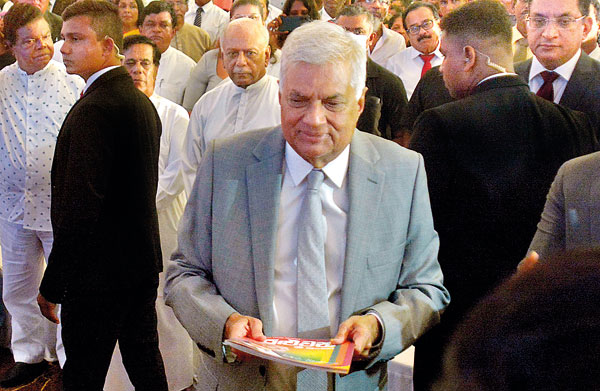
President Wickremesinghe at his manifesto launch at TAj Samudra Hotel on Thursday
Sajith’s manifesto
Another candidate who is attracting large crowds is Sajith Premadasa, leader of the Samagi Jana Balavegaya (SJB). Together with senior members of his party and those who joined recently, he called on the Maha Nayakes of the Malwatte and Asgiriya Chapters on Thursday. This was to hand over copies of the SJB’s manifesto. The pledges were to build a “resilient economy, enhance the state service, protect quality of life and safeguard the nation.” Even if the other frontrunners did not say so in those words, they were quite clearly committed to the same ideals. The SJB document was 44 pages and was titled “A win for all.” At the 2019 presidential election, Premadasa, who contested on the National Democratic Front (NDF) ticket, polled 41.99 percent or received 5,564,239 votes.
On Friday, visiting Indian National Security Advisor, Ajith Doval, met NPP leader Dissanayake. He also met President Ranil Wickremesinghe, Premier Dinesh Gunawardena and the President’s senior advisor, Sagala Ratnayake. On Thursday night, he met Sajith Premadasa. In a statement, the Indian High Commission said, “Pursuant to the discussions at the sixth NSA level meeting of CSC (Colombo Security Conclave) held in December 2023 in Mauritius, the Charter and Memorandum of Understanding (MoU) for the establishment of the CSC Secretariat were signed in Colombo on 30 August 2024 by India, Maldives, Mauritius and Sri Lanka. NSA Ajit Doval, KC highlighted the significance of the Founding Documents to further bolster CSC’s pivotal role in ensuring regional security and stability. Emphasising the role of CSC in ensuring sustained engagement across diverse pillars of cooperation, he stressed the importance of collective efforts in addressing traditional, non-traditional, and emerging hybrid challenges in the Indian Ocean Region….”
Ranil’s manifesto
On Friday, the member countries in a joint statement said, “The CSC’s core objective is to promote regional security by addressing transnational threats and challenges of common concern to the Member States. There are five pillars of cooperation under the CSC namely Maritime Safety and Security; Countering Terrorism and Radicalisation; Combating Trafficking and Transnational Organised Crime; Cyber Security and Protection of Critical Infrastructure and Technology; and Humanitarian Assistance and Disaster Relief.”
President Ranil Wickremesinghe chaired a ceremony at a specially constructed canopy at Taj Samudra where his manifesto was officially unveiled. It was titled Five Triumphant Years for Sri Lanka with Ranil” and incorporated what was identified as “five core principles.” It runs into 62 pages. A noteworthy feature of the event was the presence of many Sri Lanka Podujana Peramuna (SLPP) members. Conspicuous by his absence was the United National Party (UNP), General Secretary, Palitha Range Bandara. He denied reports that he planned to leave the party. However, UNP sources said he was facing disciplinary action over his personal conduct. Wickremesinghe this week focused on professional groups in Colombo. He also addressed outstation meetings which drew large crowds.
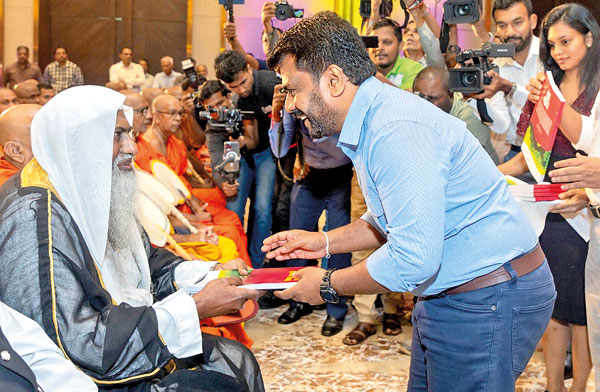
The NPP's manifesto launch at Monarch Imperial Hotel in Thalawathugoda on Monday: First copies being given to religious leaders
The pledges made in the different manifestos appear elsewhere in today’s Sunday Times. There are 39 candidates in the fray for the September 21 election. One candidate died but his name will still appear in the ballot paper. During the 2019 presidential election, there were 38 candidates and most of them polled less than 10,000 votes. The highest number of votes, 6,924,255 or 52.25 per cent was secured by Gotabaya Rajapaksa. He was elected president but fled the country to Singapore in 2022 amidst mounting public protests and sent in his resignation. Parliament, thereafter, elected Ranil Wickremesinghe to complete the remaining term.
Over the years, the JVP that leads the National People’s Power (NPP) has been credited with its ability to muster crowds, particularly during yearly May Day rallies. The tendency among sections of the political establishment has been to identify the crowds drawn by NPP candidate Anura Kumara Dissanayake as part of this phenomenon. That does not appear to be the case. Its organizational structure has permeated to the grassroots level now. This is evident, particularly in rural areas in the deep south as well as the north central province among others. In marked contrast, there was scant presence of offices of both Wickremesinghe and Premadasa. The NPP’s campaign began many weeks ahead with convening of meetings where women took part. That was a targeted audience where speakers addressed their woes. Groups accepted positions and went from house to house periodically maintaining regular contact with residents. This is just one aspect of the emergence of Anura Kumara Dissanayake as a strong contender.
Having said that, it needs to be emphasised that crowds are not always a criterion by which one can discern the totality of a candidate’s electoral chances. It is yet one factor weighed in the backdrop of another’s failure or poor performance. Contributing to that is the widespread belief that growing bribery and corruption have not been tackled. As a result, it is argued that it is not only the people but also their progeny that would have to pay to make up for the colossal losses suffered by the state. Leave alone the big sharks, even the small fry have continued to have a field day.
A talking point during the election campaign has been widespread allegations of corruption in outsourcing the issuance of Sri Lankan visas to non-state actors. The matter was highlighted at a news conference held by European polls monitors on Friday. When asked on what visas they arrived in Sri Lanka, a member parried the issue by saying they were present on the invitation of the Government of Sri Lanka. What was asked was different. A journalist sought to elicit under which type of visa they were in Colombo. In the absence of business visas, they are said to have been issued tourist visas, said one source. Even journalists arriving to cover the elections were receiving the same, said the source familiar with visa matters.
The Sri Lankan electorate is much more politically conscious than before. That has been brought about by the communications revolution. Almost everyone owns a mobile phone. Political dramas, and the twists and turns of politicians, are all at their fingertips, the result of the rapid growth of social media. No doubt there are untruths too, but this has become the era of information overload. Thus, there are Sri Lankans, who have heard, read or seen videos or photos of politicians, and turn up at political rallies. They want to match what they know with reality. It is only when they vote will their feelings are registered.
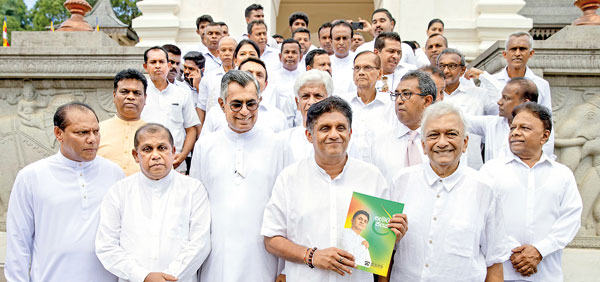
SJB leader Sajith Premadasa posing for a group picture after his Manifesto launch in Kandy on Thursday. The first copies were handed over to the Malwatte and Asgiri Mahanayakes
Which way North?
In this regard, even more important will be the voting in the country’s north. This incorporates two electoral districts, Jaffna and Wanni. The Jaffna district is made up of the Jaffna electorate with 492,280 voters whilst the Wanni district is made up of three electorates – Vavuniya 128,585 voters, Mannar 90,607 voters and Mullaitivu 86,889 voters.
The Jaffna district is represented by three MPs from the Ilankai Thamil Arasu Katchi (ITAK), one from the All Ceylon Tamil Congress (ACTC) MP, one from Sri Lanka Freedom Party (SLFP) MP, one from the Eelam People’s Democratic Party (EPDP) MP and one from the Thamil Makkal Thesiya Kootani (TMTK). In the Wanni district, there are three ITAK MPs, one SLFP MP, one MP from the Samagi Jana Balavegaya (SJB) and one from the EPDP.
After the separatist war ended in 2009, successive governments have failed to focus more intensely on improving the living standards of the people or meeting their diverse needs. Their leaders have ended up offering promises that are mostly unfulfilled. The Northern Province economy is based almost entirely on agriculture and fisheries. They contribute 4.1 percent of the national economy, according to socio-economic data from the Central Bank (2023). The agriculture sector has been hit by a labour shortage and poaching by Indian fishermen has affected the livelihood of a segment of the northern fishermen. Added to that is the absence of a fisheries harbour.
Compounding this is the reluctance of the Tamil diaspora, some of them who have become wealthy in foreign countries, being reluctant to invest in the north. They contend that the ethnic issues would have to be resolved to create what they call the right atmosphere for direct investment. The remittances sent to their relatives enabled those in the north to tide over during the period of the crisis. Yet, the Mullaitivu, Kilinochchi and Vavuniya districts have recorded high rates of poverty.
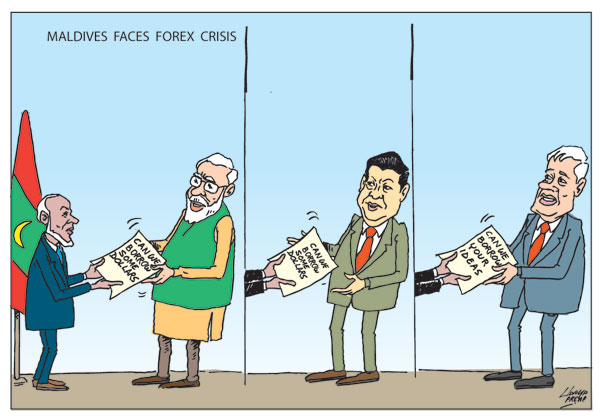
The provincial tourism sector is also seasonal (July-August) as diaspora-based relatives often visit their families during this period. The recent opening of Palaly airport, followed by Indo-Lanka ferry services also contributes to inward tourists from India, mainly from Southern states. Despite this, unemployment is a major issue among young people as most of them prefer to migrate abroad. The Jaffna district recorded the highest unemployment rate of 5.7 in 2022.
Interesting enough, India has filled what seemed an otherwise economic void in the north. The first measure was to restore the railway line to the north, making travel easy. This triggered increased business and other activity. Now, air services have begun from Jaffna to Chennai. Soon there will be a second operator. A ferry service to Nagapattinam has begun though there are teething troubles. The inaugural service of the ferry which could accommodate over 120 passengers had just over 20. An enterprising young man videotaped the voyage. On arrival, if his narrative is correct, he was grilled by Indian Immigration officials. He was asked whether he had a hotel reservation. If not, he was told to disclose with whom he was staying. For the Indian officials, the concern is understandable. They do not want aliens from other countries to use the ferry service to enter their country. They are concerned about incursions by terrorists. However, it must be borne in mind that it is the poorer sections of those in the north who would mostly avail themselves of this service. Hence, there needs to be a mechanism that will overcome what they perceive to be harassment.
Moreover, to make the ferry service more affordable for passengers, the Indian government has allocated financial assistance to the tune of Rs 25 million per month for one year to underwrite operating and other costs of the ferry service. Correspondingly, the Sri Lankan government has also reduced taxes for the vessel operated. India has also announced grant assistance of US dollars 62.65 million for the rehabilitation of the Kankesanthurai Port. It is constructing housing schemes in the once-war-affected regions.
ITAK decision
It is in this backdrop that the main player in northern politics, the ITAK, will have to decide whom it will back at the presidential election. The party is to meet on Wednesday. The delay was attributed to the main contenders in the presidential election not disclosing their manifestos. The meeting at the party office in Vavuniya will take a decision though the group is already divided. In the Eastern Province, too, there is no compelling reason for Muslim groups, like their Tamil counterparts, to vote for a particular person. This has been the case since the presidential election in 2005 with no need to either support a particular candidate or defeat one. Moreover, the three frontline candidates are not tainted by any allegation of racism. In fact, this phenomenon is explained clearly. Both Ranil Wickremesinghe and Sajith Premadasa have Tamil and Muslim groups backing them. During his rallies, Anura Kumara Dissanayake has drawn crowds of Muslims including women in headscarves in large numbers.
Another noteworthy feature is the support for the National People’s Power by the Sinhala diaspora. In the past, it was only the established political parties like the UNP and the SLFP that had overseas branches. This time around, however, the NPP has not only established a network of such branches abroad but has made them sources of substantial revenue. Branch organisations contribute funds and some of their members are already in Sri Lanka helping with Anura Kumara Dissanayake’s candidature. The NPP leader also paid visits to those countries to address members and canvass their support.
ITAK frontliner M.A. Sumanthiran and S. Shritharan, who was elected as leader recently, command significant support at the grassroots level and have the capacity to mobilise them. The ACTC led by Gajendrakumar Ponnambalam also plays a crucial role in Tamil nationalistic politics—often as a pressure group to the ITAK with tough stances on some of the sensitive political issues. The ACTC called for a boycott of the presidential polls as it did in previous polls as well. However, this was not observed.
The Tamil Makka Kootani led by former Chief Minister C.V. Wigneswaran also emerged as a party returning one seat but the party is in a declining mode since there is not much difference in policies compared with ITAK. The EPDP led by Fisheries Minister Douglas Devananda has a significant support base in the Northern Province’s coastal areas and islands.
There has been some confusion among local communities on Tamil Common candidacy. ITAK Central Committee member P. Ariyanenthiran was declared as the candidate based on the formation of the Tamil Peoples General Council on July 22 where seven political parties and seven civil society outfits signed an MoU saying there is a need to ‘send a message to the world’ as successive governments failed to resolve the ethnic conflict in the country even after fifteen years have passed since the end of the war.’
The MoU was signed by Selvam Adaikalanathan of the Tamil Eelam Liberation Organisation (TELO), C.V. Wigneswaran of the Tamil Makkal Kootani, D. Siddarthan of the People’s Liberation Organisation of Tamil Eelam (PLOTE), N. Srikantha of the Tamil Nationalist Party, Suresh Premachandran of the Eelam People’s Revolutionary Liberation Front (EPRLF), P. Iyngaranesan of the Tamil Nationalist Pasumai Movement, and S. Venthan of the Democratic Cadres Party. Civil society activists included T. Vasantharajah, S.C. Jothilingam, Prof. K.T. Kanesalingam, and R. Wigneswaran, A. Jatheendra and M. Nilanthan.
Soon after the announcement, the ITAK Central Committee called for an explanation from Ariyanenthiran and barred him from attending any party meetings. It seems within the ITAK also, there is a faction supportive of a Common candidate. Earlier this week, ITAK leader S. Shritharan announced that he would extend support to Ariyanenthiran as an “elected representative of people” considering the future of the party and the people even before the party is to make a final decision. This week, Ariyanenthiran began his election campaign from the partially damaged memorial of Rasaiyah Partheepan, nom de guerre Thileepan, one-time LTTE Jaffna commander who passed away on a fast unto death campaign near Nallur Kandaswamy temple in 1987.
Well-informed ITAK sources hinted yesterday that their planned meeting on Wednesday may end with no decision being taken. This is on the grounds that members are sharply divided on whom to support. One top party official is alleged to have received substantial support from the government. His detractors allege that it included three liquor licences for his supporters. Another is said to be staunchly backing another candidate. Hence, he is of the view that a conscience vote should be allowed. Yet others, however, claimed that they may agree on one of these two candidates.
District Secretary of Jaffna and District Returning Officer, M. Piratheepan told the Sunday Times yesterday, “The final preparations for the upcoming Presidential polls are underway. We just had a workshop for election officers on their duties and functions, followed by another for Gramasevaka Officers last week.
“In the Jaffna electoral district, 511 polling stations are set up with 8232 officers to be deployed for election duties. We have just finalised the packaging for the postal voting process. Jaffna Central College will be the Poll Counting Centre. District Secretariat and District Elections Office staff along with police personnel will be able to cast their postal votes on September 4 from 9 am till 4 pm. Tri Forces in the region will be able to cast their votes on September 5 and 6. ‘Those who are unable to cast their postal votes on these dates will be able to vote on September 11 and 12 at the District Secretariat from 9 am till noon.”
With just three weeks to go for the presidential election, no major incidents of violence has been reported. However, the Elections Commission said that more than 1,200 complaints of election law violations have been received so far. They are now being investigated, an official said yesterday.
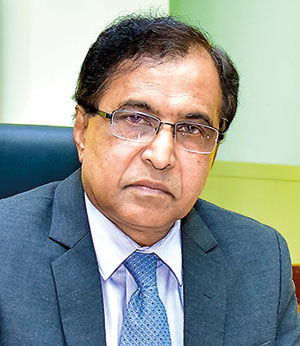 Chairman, R.M.A.L. Ratnayake EC tells people how to vote The Election Commission on Thursday set out the procedure to vote. A statement from its Chairman, R.M.A.L. Ratnayake, said, “Since more than three candidates are contesting the upcoming presidential election scheduled for September 21, 2024, voters will have the opportunity to mark their first preference for one candidate and indicate their second and third preferences for two additional candidates. However, voters also have the option to mark only their first preference if they choose. “To cast a vote, the voters should place the number 1 in the box next to the name and symbol of their preferred candidate. The voters may then mark 2 and 3 for their second and third preferences, respectively. A ballot will still be considered valid if it contains a properly marked vote for one candidate, even if the second and third preferences are not marked. “If the voters make any mark on the ballot that clearly indicates their intention (e.g., marking an X), it will still be counted as a vote for the candidate selected. “Any ballot with any writing or mark, that could identity (sic) the voter and any other ballot marked as follows will be rejected in the counting process:
| |
Buying or selling electronics has never been easier with the help of Hitad.lk! We, at Hitad.lk, hear your needs and endeavour to provide you with the perfect listings of electronics; because we have listings for nearly anything! Search for your favourite electronic items for sale on Hitad.lk today!


Main candidates declare manifestos, polls campaigns intensify
View(s):